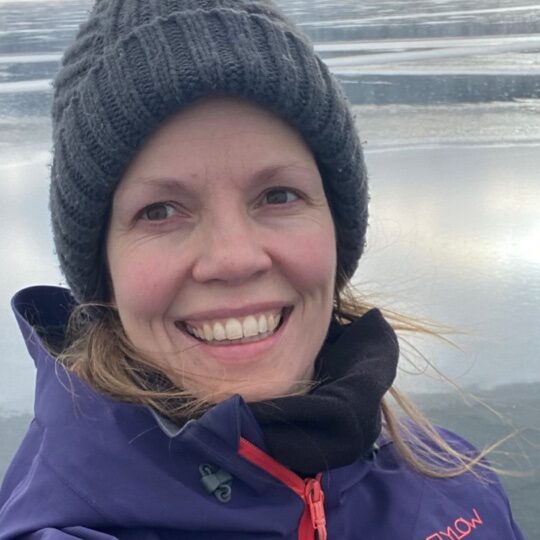Peer
Support
CPD

WELLNESS

INNOVATION

RECRUITMENT

Advocacy

AWARDS
Welcome to Penticton Physician Peer Support!
The Physician Peer Support Program at PRH encourages an authentic human connection with another person who shares similar life experiences — in this case, the unique stressors and challenges faced by physicians. For more information on the program click here.
What do our supporters offer?
PRH Peer Supporters offer non-judgmental listening and non-clinical emotional support with life, work, and other issues. We aim to facilitate these confidential, non-clinical empathetic conversations between colleagues, where physicians feel safe to share the issues they are experiencing with someone trained to listen.
What are some reasons to seek out Peer Support?
- Imposter syndrome
- Coping with health care crisis
- Personal/professional relationship issues
-
Patient/College complaints
-
Adverse clinical events
-
Acute life stressors
- Burnout
- Work stress
- Work/life balance
Confidentiality
The peer support program is structured to ensure privacy and does not report to any PRH department. Any information submitted through this website will be kept confidential (only viewable by the Peer Supporter and program administrator for the purpose of facilitating a match).
Meet our team
Dr. Sheena Manning, Physician Lead and Volunteer Peer Supporter

Dr. Michelle Linekin, Volunteer Peer Supporter

Kirsty Brenneman, Peer Support Administration
Kirsty Brenneman provides administrative support for the Peer Support program.
Additional contacts and resources
Doctors of BC Physician Health Program
24/7 line: 1-800-663-6729
Office line: 1-604-398-4300 (Mon to Fri, 8.30 to 4.30)
www.physicianhealth.com
Canadian Medical Protective Association
The CMPA is a not-for-profit, mutual defense association which is governed by a council of physicians representing members from across Canada. Contact for medico-legal support.
1-800-267-6522
Doctors of BC Regional Advisor and Advocate
RAAs are Doctors of BC staff that advise and advocate for you as physicians, inform you about Doctors of BC Initiatives and connect you with resources. https://www.doctorsobc.ca/advocacy-and-policy/advocacy/regional-advisors-and-advocates
Interior RAA: Brent Weiss.
Additional PRH MSA Resources
Other PRH MSA resources can be found here.
Need urgent assistance? Contact Doctors of BC Physician Health Program 24/7 line: 1-800-663-6729
Frequently Asked Questions
What is the rationale for the peer support program?
Physicians face unique challenges. Even clinicians with robust personal support networks stand to benefit tremendously from sharing their experiences with peers who have been in a similar situation and can truly understand and empathize with the pain, stress, vulnerability, and fear that are common emotional responses to physician experiences such as patient complaints, adverse events, and others.
What is the goal of peer support?
Peer support offers a safe way for clinicians to talk about their experience and emotions with someone who has empathy from having “been there”. The focus of peer support is not to fix the problem. Instead, we offer short-term support through non-judgmental listening, we empower you to recognize existing strengths and strategies, and we connect you to community resources if needed. Peer support is essentially psychological first aid. It is not therapy, mentorship from an experienced peer, or direct clinical care.
When might someone benefit from peer support?
Peer support might be helpful for physicians who experience work or life stressors and require emotional, non-judgmental support. Examples of this might include:
- Adverse clinical event (including but not limited to an adverse patient outcome)
- Patient or college complaint
- Interpersonal/relational conflict with a patient or colleague
- Acute life stressor which impacts career (e.g. birth of a new child or bereavement)
- Struggles with burnout/moral injury
- A change that has happened at work that impacts you emotionally
How can I request peer support?
Choose the type of Peer Support you are requesting and then fill out the online form.
If I notice my colleague needing peer support, can I refer them to you?
Yes! First, reach out to your colleague to seek their consent to pass their name and contact information to our peer support program. Then, fill out the online form.
What happens after I make a peer support request?
You will receive an automatically generated email confirming your request has been received. Emergency and wellness resources will be embedded in that email. Within 3-4 business days, you will be contacted by a peer supporter to schedule an initial meeting. In the unlikely event a peer supporter is not immediately available, a program administrator will contact you with resources and a revised contact timeline.
What does a peer support conversation look like?
Peer support conversations occur through the modality of your choice – in person, phone call or Zoom. The duration of a conversation will vary based on your needs – generally 15-45 minutes. Peer support relationships are short term, which means that you will likely have one to three conversations with your peer supporter.
How are peer support conversations kept confidential?
Confidentiality is an integral part of our program. Only the peer support program administrator and your peer supporter has access to your name and contact information for the purpose of facilitating a match and contacting you. Peer supporters will not be taking written notes during your conversation. There are rare cases where confidentiality must be broken, such as when a physician is at risk of harming themselves or others, or if a peer supporter has a direct reason to believe that someone is at risk for unsafe behaviour. These are the same reasons you might have to break confidentiality in your everyday clinical practice as a physician. If in the rare case that this situation arises, your peer supporter would make you aware of the situation and support a collaborative approach to addressing the concern.
This program is supported by:




